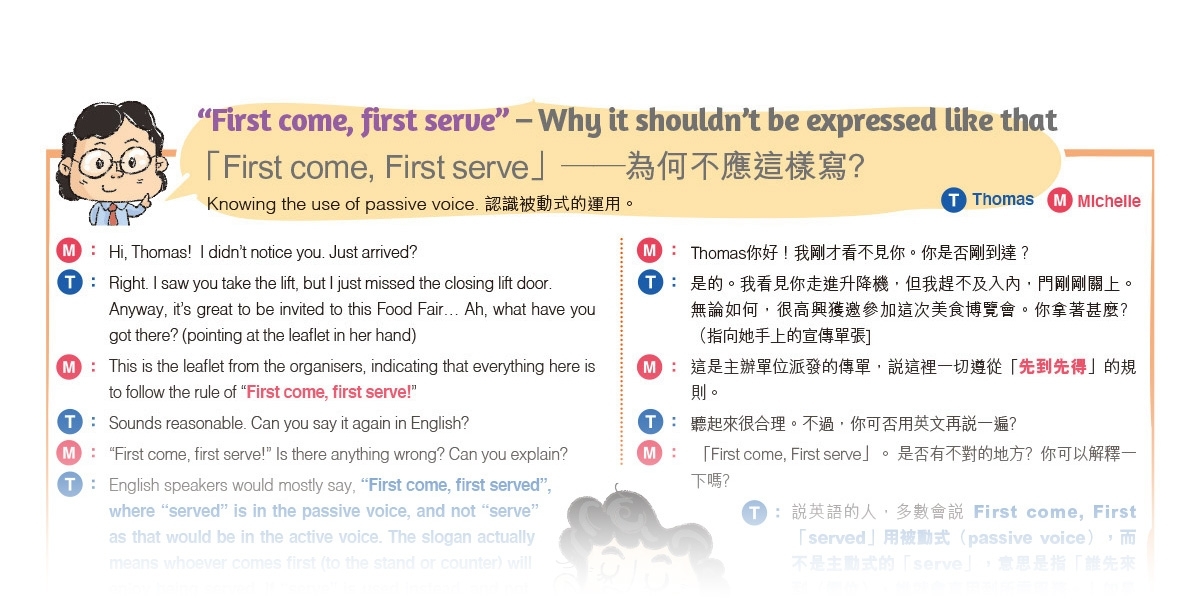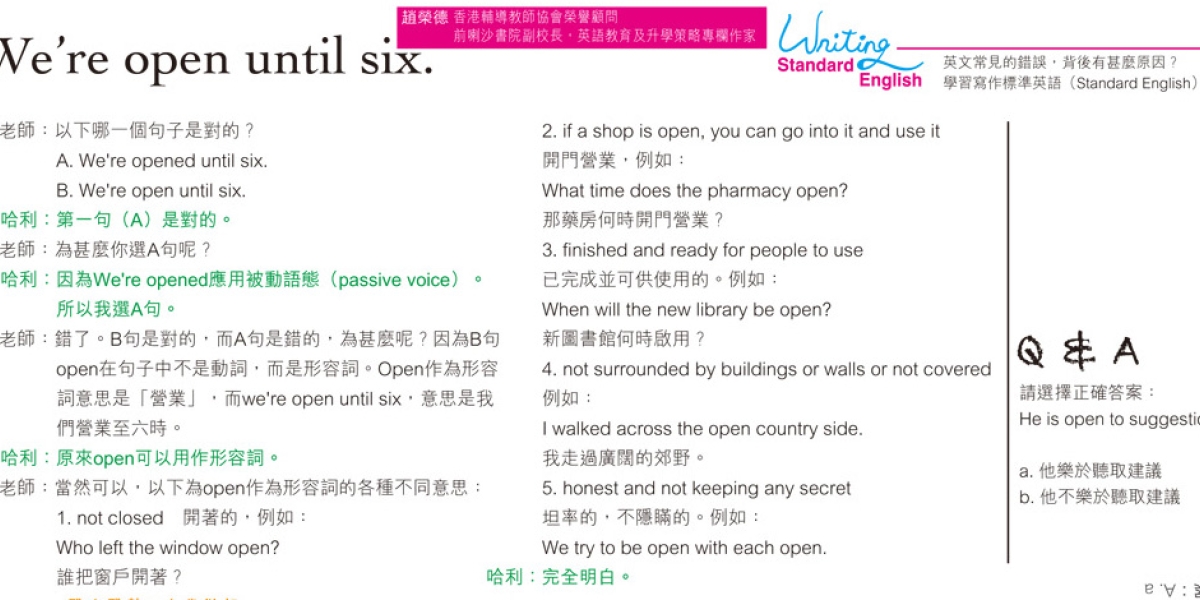昔日文章


Learning English with Thomas
2022.12.18
“First come, first serve” – Why it shouldn’t be expressed like that
「First come, First serve」——為何不應這樣寫﹖
Knowing the use of passive voice. 認識被動式的運用。
T : Thomas M : Michelle
M : Hi, Thomas! I didn’t notice you. Just arrived?
T : Right. I saw you take the lift, but I just missed the closing lift door.
Anyway, it’s great to be invited to this Food Fair… Ah, what have you got there? (pointing at the leaflet in her hand)
M : This is the leaflet from the organisers, indicating that everything here is to follow the rule of “First come, first serve!”
T : Sounds reasonable. Can you say it again in English?
M : “First come, first serve!” Is there anything wrong? Can you explain?
T : English speakers would mostly say, “First come, first served”, where “served” is in the passive voice, and not “serve” as that would be in the active voice. The slogan actually means whoever comes first (to the stand or counter) will enjoy being served. If “serve” is used instead, and not “served”, then the meaning is quite different and would mean whoever comes first will need to serve. That is quite the opposite, turning the customer into a service provider!
M : Such a big difference! I can see it now.
M : Thomas你好!我剛才看不見你。你是否剛到達?
T : 是的。我看見你走進升降機,但我趕不及入內,門剛剛關上。無論如何,很高興獲邀參加這次美食博覽會。你拿著甚麼﹖ (指向她手上的宣傳單張]
M : 這是主辦單位派發的傳單,說這裡一切遵從「先到先得」的規則。
T : 聽起來很合理。不過,你可否用英文再說一遍﹖
M :「First come, First serve」。 是否有不對的地方﹖你可以解釋一下嗎﹖
T : 說英語的人,多數會說 First come, First 「served」用被動式(passive voice),而不是主動式的「serve」,意思是指「誰先來到(攤位),誰就會享用到所需服務。」如果用「serve」, 語意上大有不同,變了 「 當誰先來到(攤位),誰就要提供服務。」兩者的意思幾乎相反——原本光顧的客人變成了服務提供者。
M : 分別原來這麼大!我現在明白了。


Writing Standard English
2011.10.28
We're open until six
趙老師:以下哪一個句子是對的?
A. We're opened until six.
B. We're open until six.
哈利:第一句(A)是對的。
趙老師:為甚麼你選A句呢?
哈利:因為We're opened應用被動語態(passive voice)。所以我選A句。
趙老師:錯了。B句是對的,而A句是錯的,為甚麼呢?因為B句open在句子中不是動詞,而是形容詞。Open作為形容詞意思是「營業」,而we're open until six,意思是我們營業至六時。
哈利:原來open可以用作形容詞。
趙老師:當然可以,以下為open作為形容詞的各種不同意思:
1. not closed 開著的,例如:
Who left the window open?
誰把窗戶開著?
2. if a shop is open, you can go into it and use it
開門營業,例如:
What time does the pharmacy open?
那藥房何時開門營業?
3. finished and ready for people to use
已完成並可供使用的。例如:
When will the new library be open?
新圖書館何時啟用?
4. not surrounded by buildings or walls or not covered
例如:
I walked across the open country side.
我走過廣闊的郊野。
5. honest and not keeping any secret
坦率的,不隱瞞的。例如:
We try to be open with each open.
哈利:完全明白。






